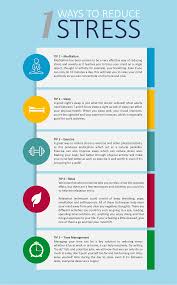How to Reduce Stress in Your Daily Life
Stress is a common problem that many people face in today’s fast-paced world. It can have negative effects on both our physical and mental health if left unchecked. Fortunately, there are several strategies you can implement to reduce stress and improve your overall well-being.
Practice Mindfulness
Mindfulness involves being fully present in the moment and paying attention to your thoughts and feelings without judgment. By practicing mindfulness through activities such as meditation or deep breathing exercises, you can reduce stress levels and increase your sense of calmness.
Exercise Regularly
Physical activity is a great way to relieve stress and improve your mood. Whether it’s going for a walk, practicing yoga, or hitting the gym, regular exercise can help release endorphins, also known as “feel-good” hormones, which can reduce stress and anxiety.
Maintain a Healthy Lifestyle
Eating a balanced diet, getting an adequate amount of sleep, and staying hydrated are essential components of managing stress. A healthy lifestyle can help support your body’s ability to cope with stressors effectively.
Set Boundaries
Learn to say no to tasks or commitments that overwhelm you. Setting boundaries with others and prioritizing your own needs can help reduce feelings of being stretched too thin and minimize stress levels.
Practice Relaxation Techniques
Incorporate relaxation techniques such as progressive muscle relaxation, visualization, or aromatherapy into your daily routine. These practices can help calm your mind and body, reducing tension and promoting relaxation.
Connect with Others
Social support is crucial for managing stress effectively. Reach out to friends, family members, or a support group when you need help or someone to talk to. Connecting with others can provide emotional comfort and perspective during challenging times.
By incorporating these strategies into your daily life, you can effectively reduce stress levels and improve your overall well-being. Remember that it’s important to prioritize self-care and make time for activities that bring you joy and relaxation.
5 Effective Tips to Reduce Stress and Improve Well-Being
- Practice deep breathing exercises
- Engage in regular physical activity
- Meditate or practice mindfulness
- Maintain a healthy diet and stay hydrated
- Get enough quality sleep
Practice deep breathing exercises
Practicing deep breathing exercises is a simple yet powerful technique to reduce stress and promote relaxation. By taking slow, deep breaths and focusing on the sensation of air entering and leaving your body, you can activate the body’s natural relaxation response. Deep breathing helps calm the mind, lower heart rate, and reduce muscle tension, making it an effective tool for managing stress in daily life. Incorporating deep breathing exercises into your routine can help you feel more centered, grounded, and better equipped to handle stressful situations with a sense of calmness and clarity.
Engage in regular physical activity
Engaging in regular physical activity is a highly effective way to reduce stress and improve overall well-being. Exercise not only helps release endorphins, which are known as “feel-good” hormones, but it also provides an outlet for pent-up energy and tension. Whether it’s going for a brisk walk, practicing yoga, or participating in a team sport, physical activity can help clear the mind, boost mood, and promote relaxation. Making exercise a consistent part of your routine can have long-lasting benefits for managing stress levels and enhancing both your mental and physical health.
Meditate or practice mindfulness
Meditating or practicing mindfulness is a powerful technique to reduce stress and promote mental well-being. By taking the time to focus on the present moment, acknowledge your thoughts and feelings without judgment, and cultivate a sense of inner peace, you can effectively calm your mind and lower stress levels. Regular meditation practice can help you develop greater self-awareness, improve emotional regulation, and enhance your overall resilience in the face of life’s challenges. Embracing mindfulness as a daily habit can lead to a more balanced and harmonious state of mind, allowing you to navigate stressors with greater clarity and composure.
Maintain a healthy diet and stay hydrated
Maintaining a healthy diet and staying hydrated are essential components of reducing stress and promoting overall well-being. A diet rich in fruits, vegetables, whole grains, and lean proteins can provide the necessary nutrients to support your body’s ability to cope with stress. Additionally, staying hydrated by drinking an adequate amount of water throughout the day can help regulate bodily functions and promote mental clarity. By fueling your body with nutritious foods and staying hydrated, you can better manage stress levels and improve your resilience in facing life’s challenges.
Get enough quality sleep
Getting enough quality sleep is essential for reducing stress and maintaining overall well-being. Adequate rest allows the body to recharge, repair, and rejuvenate, which can help regulate stress hormones and improve mood. Quality sleep is linked to better cognitive function, emotional resilience, and overall health. By prioritizing a consistent sleep schedule, creating a relaxing bedtime routine, and ensuring a comfortable sleep environment, you can enhance your sleep quality and effectively reduce stress levels in your daily life.




